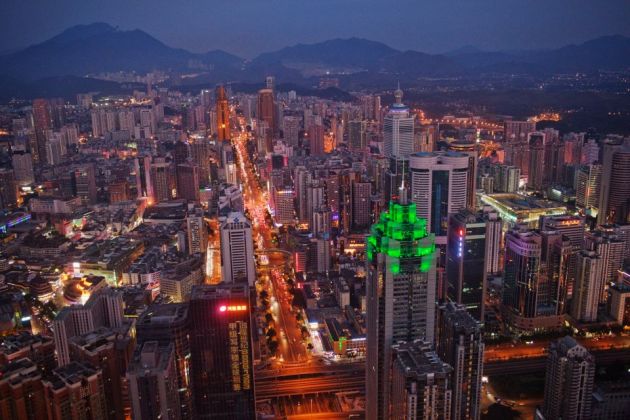Chinese cities on lockdown as Covid-19 cases spiral and local stocks tumble

As China battles its largest surge in Covid-19 cases since the beginning of the pandemic, Beijing has shuttered several cities including technology hub Shenzhen.
It comes as Covid-19 cases in the country, which has adopted a controversial ‘Zero-Covid’ stance, tripled in just one day.
With fresh restrictions also being blanketed across Shanghai, China’s CSI 300 fell three per cent, Chinese stocks trading in Hong Kong plunged more than seven per cent and the Hang Seng index tumbled five per cent today.
The lockdown in Shenzhen has seen Apple supplier Foxconn shut its plants – as fears brew over what it means for already strained global supply chains.
“Now we could have another wave of stoppages, or at least limitations on supply, that threaten to push prices still higher,” Chris Beauchamp, chief market analyst at IG Group, told City A.M.
“It’s another burden on a set of supply chains that could really do without it – the pandemic and then the surge in demand has produced plenty of problems, which have then been compounded by the war in Ukraine.”
‘Half a million containers not starting their journey’
Shenzhen, home to the world’s fourth largest port and 17.5m residents, borders Hong Kong which has been paddling against its own pandemic tides in recent weeks.
“While all eyes are on Russia’s invasion of Ukraine, the lockdown announced in Shenzhen will send shockwaves through global supply chains,” warned Simon Geale, executive vice president for procurement at supply chain consultancy Proxima.
“A one-week delay means that roughly half a million containers are not starting their journey. We know that lead times are already long, and rates are historically high, but what are the other options? Alternate routes like air and rail are also at an all-time peak, and battling with their own availability issues, particularly into Europe.”
Restrictions are set to be reviewed on 20 March, with China remaining a desirable and stable trading partner critical to its economy.
Economic research analyst at GlobalData, Gargi Rao told City A.M. that with the world “dependant” on the country as one of the top import destinations for manufacturing raw materials, countries may seek to “diversify their imports destination away from China”.
There had already been a trend of “decoupling” at the beginning of Covid-19, which was first detected in Wuhan in late 2019, where Western countries and India sought to become less dependent on China’s output.
“Possible decoupling might happen again,” Rao explained, adding that the “US, Japan and France could look for trade opportunities with India and Vietnam as alternative sources for importing and the assembling of their products”.